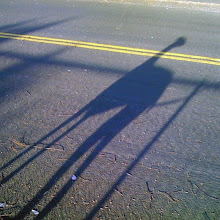Fairy Tales Can Come True, They Can Happen to You, If You're Young and Hard
Bare Feet, Glass Slippers
Back when I was poet I had lines I loved but had no home for. I would place them in a poem, but they'd glitter like green glass amid the gravel. There's one line I kept dropping into poems, but it never sat quite right: The poem had to be called “White Pages” and the line read, “In a hundred years, it will be an obituary.” Maybe the line is destined to wander, an orphan among words.
But such a list could lengthen with all the never-settled images that seemed to sparkle, all the local musics that seemed as indelible as Stevens’ “Sunday Morning,” at least as hookable as the Stones’ “(Can’t Get No) Satisfaction.” Homesick for the land of pictures, every writer’s desire is to put things away, in places they belong, even if, particularly if, no one knew.
The first time I fell, really fell, in love (this is one of those romanticizings of losing one’s virginity), the woman recognized, when we were yet just friends, how a song moved me, how bathos hid me in its bubble. The song, Ian Hunter's "Irene Wilde," about a dumped-lover dreaming, “I’m going to be somebody, someday” in an "I'll show you" petty pity party way engraved like an invitation to seventeen-year-old wannabe poet me, can still edge me to tears, when the lights are low, the evening late, the liquor drank, and life is just life. There is a power in the maudlin of mothers’ calling children home at dusk. And so I fell in love, marveling someone knew I was moved, stunned someone felt me feeling. It was little surprise, then, the night we ended up in bed spring had sprung, it was March, and things started at an odd dorm party where we, madly kissing, thought we could hide behind a Christmas tree.
Why hide? Because Jenny was involved with someone else. There’s always a sensing of things, so Joe knew and was at Jenny’s door, and what became a straggled out week of romantic stealth ended. “Joe, go away.” Inevitable tears--the kind you cry when you find yourself wanting to hurt someone, those sins of omission. The movie Jenny and I saw earlier that evening was Tess, and it’s the film’s men I couldn’t understand. Roman Polanski, the director, has trouble with forgiveness, of course, but even Angel is unreasonable, too, too the preacher’s son. Could Tess refuse a strawberry on a fine day?
The patch of blood on the ceiling spread from strawberry size on. The arrest, at Stonehenge, is all the primal heading off in Nastassia Kinski’s sullen women-child beauty, something even she hasn’t got over: her looks have permitted her career only this one role. At Jenny’s room, later, Joe’s outside, we’re inside, the lights off, but the movie cannot stop. I am cruel and in love.
Joe will not speak to me for years, although I am left by Jenny in a similar if less dramatic fashion six months later. The stories go on, veritable palimpsests: A mad rollercoaster dash, a spaghetti plate’s last strand, a trig function gone awry.
Yet--or perhaps I mean yes--stories are made to sweeten. Few know how grim Grimm fairy tales are, how Cinderella, say, ends with the stepsisters, who are actually beautiful (if brilliantly cruel), so desperate for the prince, so fat of feet, chopping their own toes, hoping to squeeze into the shoe, which through a faulty translation, has been changed from fur to glass. To gaze down at that bloody clotted fur is to glimpse the ever-opening hope of slipping into something, is to forget their story is western culture's analog to foot-binding. That gaze is hoping a fairy tale like love is home, passing judgments like one word sentences: This. Here. Now. So, eager for a new life, to find a fit, the sisters risk blood, willing love and not caring about becoming cripples.
It’s an overstatement to say: Smearing prints and blood, we mark each other with desire, with our hopes we are living. And of my lines left wandering, I find these: “I wasn’t blind enough when I was blind;” “It’s for this I love and never forgive you;” “We are all dying for a better life.”


4 Comments:
Can I borrow your lines for a poem? I'll give them back Friday after class...
Fine writing, my friend.
Borrow away. I'd love to be turned into an exercise. Just let me see the poem.
If someone turns you into an exercise, does that mean you can stop working out? Fine, fine work, and a nice little nod to WCW there.
First I'd have to start working out, Marty.
Thanks for spotting the WCW. You poets, you.
Post a Comment
<< Home